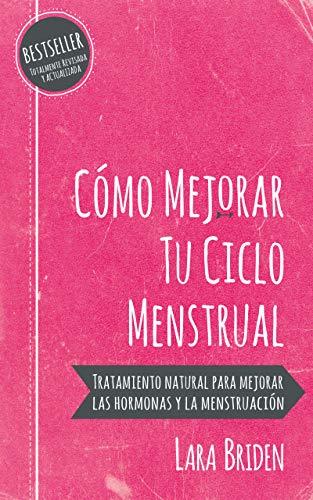What do you think?
Rate this book


Cómo mejorar tu ciclo menstrual es tu guía para tener periodos más sanos utilizando tratamiento naturales tales como dieta, suplementos nutricionales, hierbas medicinales y hormonas bioidénticas. Contiene recomendaciones y consejos para mujeres en todas las edades y situaciones. Si tienes tu periodo (o si quieres tenerlo), este libro es para ti.
Los temas incluyen:
Escrito por una médica naturópata con más de veinte años de experiencia en la salud de la mujer, este libro es una recopilación de todo lo que funciona para la salud hormonal.
436 pages, Kindle Edition
First published January 16, 2015
"Why should we have to shut down a woman's entire hormonal system just to accomplish the simple job of preventing pregnancy? Fertility is an expression of health, not a disease to be treated with a drug."
"Need a quick way to know if a food item has too much sugar? Ask yourself: ‘Does it taste really sweet?’ If it does—if it is essentially dessert—then it has too much sugar."Uuhh... thanks?
Your period is not just your period. It is an expression of your underlying health. When you are healthy, your menstrual cycle will arrive smoothly, regularly, and without symptoms. When you are unhealthy in some way, your cycle will tell the story.
No periods? Your doctor may have advised you just to take the pill and not worry until you’re ready for a baby. That will give you fake drug-induced bleeds for now, and you can always take a fertility drug later. You know that’s not good enough. You want a real period, and you want a regular period. According to the American College of Gynecologists, a regular period is a vital sign of health; according to me, it’s a key indicator of your monthly report card. A regular period is also a good sign that you ovulate. If you take it one step further and track your temperatures to confirm that you ovulate, then you know that all is well with your underlying health and metabolism. And remember, you want to ovulate. It’s how you make the wonderful hormones estradiol and progesterone and receive their many benefits for mood, metabolism, hair, and bone health.
Sleep is another priority strategy for period health. Getting seven or eight hours of quality sleep each night will do more for you than almost any supplement or herb we discuss in this book. Why is sleep so important for hormones? For one thing, it stabilizes your HPA axis and cortisol. It also improves insulin sensitivity and regulates the release of luteinizing hormone (LH), estrogen, and progesterone. Sleep is more important than exercise. Hopefully, you have time in your day for both. If you have to choose between sleep and exercise, choose sleep! Aim for at least seven hours each and every night. If you have trouble sleeping, then please take a minute to consider the underlying reason.
Your body wants to be healthy. It wants to have healthy periods. Treat the cause, and play the long game. Stick with your treatment. Trust your body.